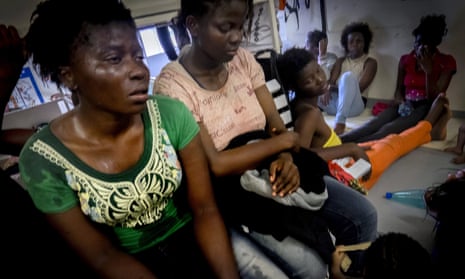The world is on course to register its highest number of migrant deaths this year, as criticism mounts over failing international efforts to cope with the global refugee crisis.
Forecasts from analysts at the International Organisation for Migration (IOM) indicate that the number of fatalities among refugees will pass the landmark figure of 10,000 in 2016. The dire statistic will cast a shadow over two high-profile summits on migration in New York this week: on Monday the UN general assembly will meet to discuss the record volume of individuals forced to flee their homes as a result of crises and war around the world. That number currently stands at 65 million people, including 21.3 million refugees who have been forced to flee their country.
On Tuesday, US president Barack Obama will host a leaders’ summit – to be attended by the prime minister, Theresa May – intended to raise funds for refugee initiatives and expanded resettlement programmes.
Julia Black, of the charity Missing Migrants Project at its data analysis centre in Berlin, said that the organisation was confident that the world was facing its highest-ever mortality migration rate. She told the Observer: “Last year we had more than 5,000 deaths across the world. This year we’re already at more than 4,000, but outside of the Mediterranean and Europe the information is so poor we really think it’s a gross underestimate.
“This year we’ll reach that 5,000 total again realistically, but I would expect the real figure would be twice as much. The order of magnitude is greater than anything we’ve seen.”
A huge proportion of migrant deaths occur from drownings during the hazardous Mediterranean crossing from Libya to Italy. The latest figures show that 3,212 have died so far during 2016 making the journey. The IOM also said it had logged 400 deaths due to migration this year in Latin America. “But the number could easily be two or three times that figure,” said Black.
On Saturday thousands of people marched through central London calling on the UK government to display stronger leadership in finding a humane international response to the refugee crisis and urging May to adopt a leading role at the New York meetings.
On Saturday night Yvette Cooper, chair of Labour’s refugee taskforce, joined calls for May to provide more safe routes of passage to Britain in addition to increasing help for unaccompanied child refugees and accelerating plans to resettle 20,000 Syrians.
“The decisions parliament and our country have taken are being mired in red tape and government foot-dragging. Britain has always done its bit to help those fleeing persecution – we have to live up to those values again now,” said Cooper.
The draft document for the UN summit has been heavily criticised by human rights groups who say it has effectively “sabotaged” its outcome by removing any proposals of substance.
Critics also point to the UK government’s donor conference for Syria, held in London in February, which seven months on has yielded only one sixth of the £6bn pledged. On Friday, it emerged that fewer than 5,000 asylum seekers have been relocated from Greece and Italy to other European countries. Adopted one year ago, the EU relocation scheme was designed to relocate 160,000 asylum seekers from frontline EU countries.
New reports indicate that some Syrian refugees are opting to return home. Ghias Aljundi, a Syrian refugee and adviser to Amnesty International’s campaign on refugees, said that families stranded in Greek refugee camps were so fed up having to wait months in “dire” conditions they were choosing to return to Syria, where more than 470,000 have died in the civil war.
“They want to go home to Syria. And we all know how bad the situation is there. One father said: ‘We have lost hope in Europe, we have lost trust in Europe,’” added Aljundi.
The dangers faced by refugees will be highlighted in a series of reports unveiled this week. Among them one by the Economic and Social Research Council (ESRC) which is expected to reveal that three-quarters of those who crossed via Libya experienced physical violence, and over a quarter detailed experiences relating to the death of fellow travellers.
